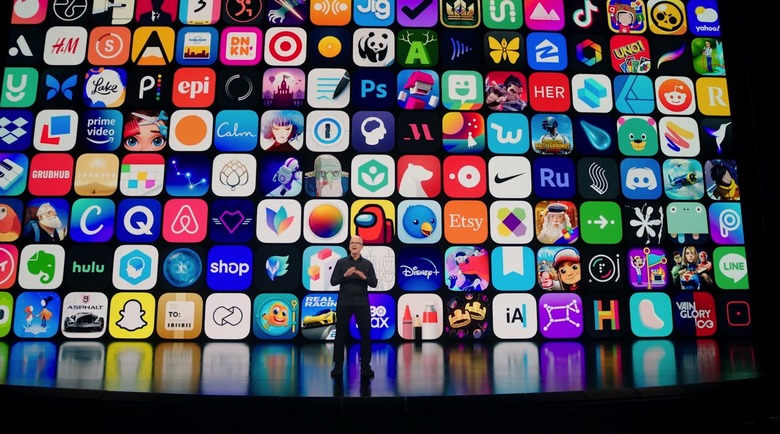Paddle Will Challenge Apple's In-App Purchases With Its Own Payment System
The first trial in the Epic Games vs. Apple trial concluded a few days ago, with the verdict favoring Apple. Fortnite isn't back on the iPhone, iPad, or Mac, and Epic has to pay Apple millions of dollars. But Epic did score a small win that could send ripples in the industry. The judge said Apple should allow apps like Fortnite to display an alternative to the default App Store in-app purchase (IAP) system. The language made it sound like Apple doesn't have to allow third-party payments systems in iPhone apps. Rather, it'll have to allow developers to link to a different payment option. And some developers, like Paddle, are already looking to compete against Apple's in-app payment system with a solution of its own.
Paddle’s in-app purchase system vs. Apple
Epic and other developers challenged Apple's 30% commission with their various antitrust allegations against the iPhone maker. Epic forced the whole legal mess with Apple by sneaking its own payment system into Fortnite on iPhone. The action set off in motion of series of predictable events that culminated with the trial and the verdict.
Now that the judge said Apple must allow links to other payments options inside apps, developers like Paddle will want to take advantage of the potentially lucrative opportunity. Apple hasn't even explained how it'd implement the new requirement. But Paddle already has a page up on its website comparing its in-app purchase system against Apple's default.
Paddle advertises lower fees that start at 10% for transactions below $10. Over that amount, the fee changes to 5% and an additional $0.50 per transaction. Paddle signals other advantages to developers that Apple doesn't offer, like accessing customer email for support. Also, PayPal payments are part of Paddle's system, whereas Apple doesn't support PayPal.
Paddle's page lets interested developers sign-up for the feature, although it's unclear what happens next. Apple is yet to reveal how it'll implement the court's decision.
"We would love to hear from Apple and get on-the-record a description of exactly what's going to be allowed versus not," Paddle CEO Christian Owens Owens told CNBC.
How it might work
"I think it's going to be a situation of, if you want to offer an off-platform, in-app purchasing mechanism, you have to offer the Apple in-app purchasing mechanism alongside that as well," Owens said.
Paddle built three distinct implementations for its software, according to CNBC. One of them lets developers offer monthly or annual subscriptions with an "Upgrade Now" button that takes the user to Safari. A Paddle-hosted webpage will then load with several payment options, including Apple Pay and PayPal. Once the transaction finishes, the user can return to the app.
Paddle isn't the only company looking to take advantage of the new in-app store payments opportunity. CNBC also mentions RevenueCat, a developer that builds similar payment processing tools for iPhone apps. RevenueCat is developing a browser-based payments system that developers can add to their apps. A link inside the app is all that's needed to let customers choose an alternative to the default.
"We're operating under the assumption that developers will still be required to use Apple's IAP inside of their apps but that you now will be allowed to reference and link to external paywalls," CEO Jacob Eiting told CNBC.
Users won’t necessarily love alternatives
However, the RevenueCat exec also indicated that he doesn't expect third-party payments to make a huge impact. That's because the systems will be more cumbersome, forcing users to exit the app to complete purchases. Another problem concerns managing subscriptions. Using Apple's system, buyers can do everything in a single place. But users will have to manage subscriptions individually if they pay via third-party options like Paddle, RevenueCat, and others.
There's no telling when Apple will roll out updated Apple Store rules that allow developers to link to third-party payment options. But an update must be in the works.
Separately, Apple settled an antitrust case in Japan where it agreed to allow links to the websites of "reader" apps like Netflix and Spotify. This would let customers manage subscriptions on developers' sites rather than buying them through Apple. The settlement offers a solution that Apple could also apply to all other apps, following the Epic ruling.
